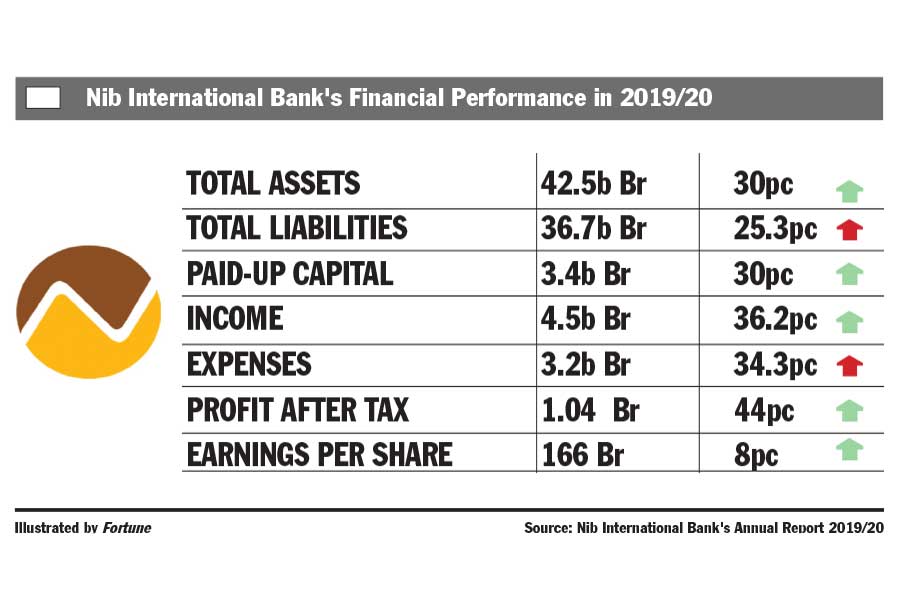
Fortune News | Jan 23,2021
On a broad plot across from a Sheger Bread stall in the heart of Qality, in the outskirts of Addis Abeba, lies the foundation of an unfinished 11-storey building. A group of seven friends came together two years ago with a plan to erect a structure on a 2,300sqm land. They had planned to get in on the action in the capital's lucrative property market.
The group hired Dynamic Construction Plc, a grade-three contractor incorporated two decades ago, to work on the foundation. The company, however, was adamant a clause is included in the contract stating it would be responsible only for providing labour and supervising the construction work. Its managers decided to leave the burden of buying construction materials and inputs to the project owners.
Dynamic Construction had good reason for doing so. Three years ago, the contractor landed a contract to build a 17-block vocational school in East Shewa, Oromia Regional State, for 40 million Br. The East Shewa administration eschewed any terms for price escalation agreements as the project completion time was less than a year. However, rising prices for construction materials meant Dynamic was left with a seven million Birr loss by the end of it all.
Kefelegn Hailu, a founder and general manager of Dynamic, had hoped to avoid a similar outcome when he insisted the contract with owners of the building project in Qality apply only to labour provision and supervision work.
“I'd immediately decided to engage only in construction works that do not involve material procurement,” said Kefelegn.
His company set to work on the foundation, laying reinforcement bars (rebar) immediately following the signing and securing a portion of the project cost as an advance. Unfortunately, it was not long before runaway prices impeded the project. In the weeks leading up to the launching of construction, a kilo of rebar was around 30 Br. It had nearly doubled by the time the project owners got around to buying rebar, leaving them short of cash to foot the bill for cement.
Dynamic Construction, which started with a registered capital of four million Birr, was forced to suspend construction with around two million Birr remaining in outstanding payments. The contractor now handles only one project; a twin 11-storey building in Qality where it was hired to provide labour and supervision for 70 million Br. Kefelegn laments the lack of provisions for price escalations in contracts. He is not alone.
Contractors across the industry have been in an uproar over the skyrocketing prices for building materials seen over the past few years. Combined with the COVID-19 pandemic and foreign currency crunch, jacked-up prices have pummeled the construction sector.
“It's never viable getting into contracts without proper consideration for price escalation,” said Kefelegn.
The construction industry, which contributes nearly a fifth of the country's gross domestic product (GDP), has been the primary driving force for the public investment-led development model the government has implemented over the last two decades. Growing by a yearly average of 11pc, the industry is a source of employment for five percent of the national workforce of over 41 million, according to the Ethiopian Statistical Service. However, the industry has been riddled with tribulations over the past couple of years.
Cement - or its unavailability - is among the primary pressure points. A crucial input in construction, prices nearly tripled to around 700 Br a quintal in the past three years. Despite the authorities' efforts to tame the surging prices and improve supply, including price caps, it did little to improve the situation. Intermediaries and brokers are blamed for capturing the supply chain, often accused of hoarding and price gouging.
Intermediaries are often reluctant to issue receipts, and retailers are afraid of inspectors from tax bureaus to sell cement without one.
A planned G+10 building in the Qality area was stalled at the foundation stage due to drastic price hikes in construction materials. A kilo of rebar was 30 Birr as the project owners embarked on the building. The figure is near 100 Br now.
"Trade in commodities like cement has become almost like contraband," said Kefelegn.
A walk through Megenagna, one of the capital's hubs for cement and rebar retail, demonstrates Kefelegn's observations. Stores are lined up alongside a wide tarmac road leading to the Ayat suburb, installed on elevated height accessible through a series of stairs. Not a few of them are seen sealed by local authorities accused of "sabotaging" the market. Retailers scrutinise would-be buyers with suspicion and question them with a degree of wariness.
Ironically, a few customers visited any of the over 50 stores dotting the warehouses lined up near the hyper-busy roundabout.
A few years ago, the story was markedly different. Clients, porters loading and unloading goods, trucks and drivers packed the street. They used to make it difficult for pedestrians to pass through. Vendors say things have cooled down due to a shortage of cement, and high prices scaring away potential buyers.
Alem Asfaw has been working at the rebar retail shop she inherited from a relative for nearly a decade. She recalled selling up to 300 pieces of rebar on a regular day. Those days are long gone. The last time she closed a sale - any sale - was a week ago, offering 20Kg of rebar for 110 Br a kilo. Alem blames shortages for the hard times.
“The factories are barely supplying us with the metal,” she told Fortune.
A few meters away from Alem's store, Senait Belete's had a range of building materials on offer. Near the entrance of her store was stacked up a few quintals of bagged cement. Only a handful of other stores in the bloc had any cement at all. A quintal of cement from the National Cement was sold for slightly less than 700 Br at her shop. It is 10pc higher than what she had been offering a week ago.
“I sold only a quintal of cement today,” she said.
Senait also had corrugated iron in stock, though prices for the material used mostly as roofing and fences have doubled to 500 Br apiece over the past four months. Frustrated by the drop in business, the vendors can do little but wait with folded arms. For better times.
This is a development that has left many notable contractors idle, while others are on the verge of collapse.
Among the latter are Tekleberhan Ambaye (TACON) and Afro-Tsion construction companies, whose reputations as top-tier contractors have all but faded over the past couple of years.
The Federal Building Construction Project Office, which currently handles seven mega projects across the country, scrapped a contract with TACON to construct a 16-storey building in Arat Kilo in November 2020. The 1.2 billion Br building slated to serve as a headquarters for the Ministry of Trade is only one of several that TACON has seen stripped from it. Others include an 11-storey building on the premises of the National Theater and two buildings to be erected for use by the Ministry of Foreign Affairs.
Afro-Tsion Construction Plc, another reputable grade-one contractor, also had two projects worth a combined 2.6 billion Br terminated by the project office last March. The office is preparing to rebid the projects to other contractors, while TACON's 16-storey project has already been handed over to the state-owned Ethiopian Construction Works Corporation (ECWC).
Tekletsadik Teklearegay, head of the project office, recognises surges in the prices of construction materials have had an effect, but he blames slothful contractors that contribute most to project delays.
“Some contractors don’t even give you a chance to reconsider project costs as they progress slowly with the advance payment they receive or use it for other projects,” he said.
Nonetheless, Tekletsadik concedes due attention needs to be given to the rising costs of building materials. Though price escalation clauses are included in most contracts for public projects, a directive excludes any projects scheduled to last less than a year.
The good news for contractors is that the Construction Works Regulatory Authority is undertaking studies its officials plan to use for a new directive that will make public projects of all timeframes eligible for price escalations clauses.
The Ethiopian Construction Contractors Association, under the leadership of Girma Habtemariam, has around 2,400 members. The lobby group has seen mediations between contractors and their clients over issues of price escalation slowly become its main preoccupation in recent years. Nearly four decades in the industry, Girma has never seen construction professionals faced with as many challenges as they are now.
Political unrest, forex shortages, price fluctuations in fuel and metal products in the international market, and illicit practices by traders of construction inputs are to blame.
“Contractors take the fall and get all the blame for project delays while all these issues are present,” he said.
For the last six months, the Association has been developing recommendations to include price escalation clauses in public projects. Once completed, the study will suggest a benchmark for regulated price escalation. Girma argues the key to addressing the issues is special market regulation.
“Even after taking all the advantages the government has to offer, local manufacturers still sell materials at the same prices that imported products are sold for,” he said, referring to the rebar markets.
Foreign currency shortages have been taking a toll, especially on finishing materials, which are almost exclusively imported. Several companies involved in finishing works have seen their business decline.
Among them is Rotech Glass & Aluminium Works. In better days, the firm would handle up to three large projects at a time, each contract running for several months. Now, Rotech is lucky to land three-day projects at smaller residences.
"Prices vary so drastically that a pro-forma submitted in the morning might change in the afternoon," said Robel Shibabaw, general manager of the company.
Two years ago, Rotech charged 900 Br to buy and install one square metre of safety glass. The price has since ballooned to 2,300 Br.
Though locally-produced glass is available in the market, Rotech often chooses to forego it in favour of imported ones. Still, even domestically manufactured glass has seen prices nearly quadrupled to around 750 Br a square metre in the past four months.
“Everybody blames the forex shortage,” said Girma.
Not experts like Abebe Dinku (Prof.), a civil engineer and chairperson of the construction materials and management department at the Addis Abeba Institute of Technology. The price surges crippling the construction industry are due to a lack of coordination. Abebe argues improved work ethic and the timely use of advance payments by contractors would play a role in alleviating the issues and reducing risk. He also accepts project owners should earnestly consider price escalation clauses in their contracts.
Abebe urges government officials to closely watch suppliers, intermediaries, and retailers involved in the construction materials market.
“Whether players in other industries record losses or profits, construction material traders never lose anything,” he said.
The expert also dismisses any claims of supply shortages.
”Supply and demand imbalance can’t be a reason for the price surges since there isn't much construction work taking place,” he said.
Dynamic Construction and nearly 23,000 other contractors wait - hornswoggling - for possible solutions. They take what few projects come their way, paying keen attention to the terms of the contracts they are signing up for.
PUBLISHED ON
Feb 19,2022 [ VOL
22 , NO
1138]

Fortune News | Jan 23,2021

Fortune News | Feb 11,2023
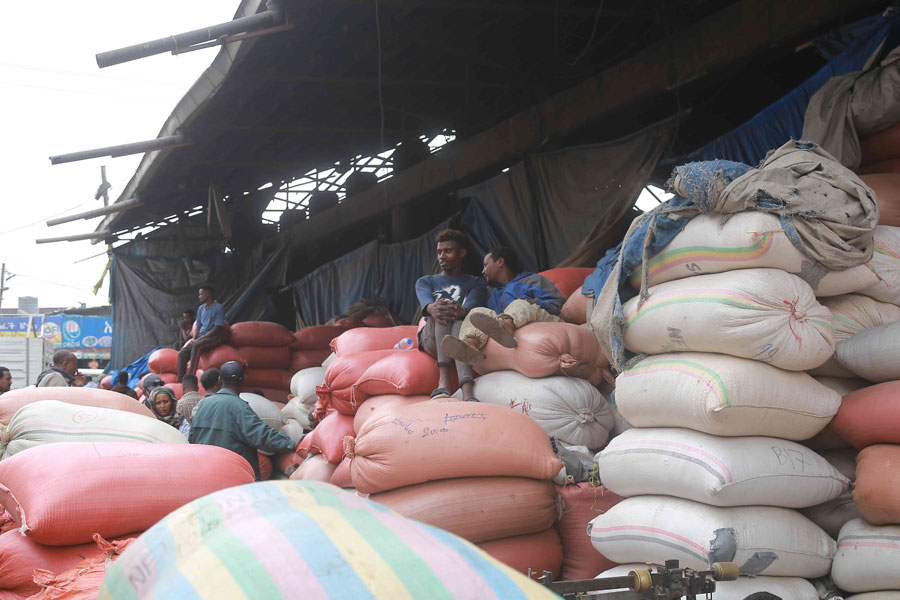
Agenda | Mar 04,2023
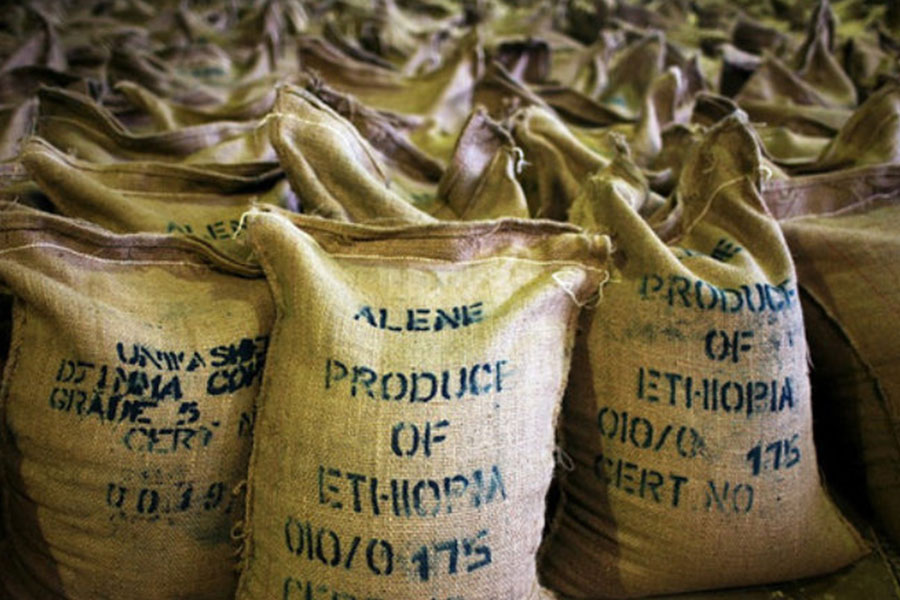
Fortune News | Dec 19,2021
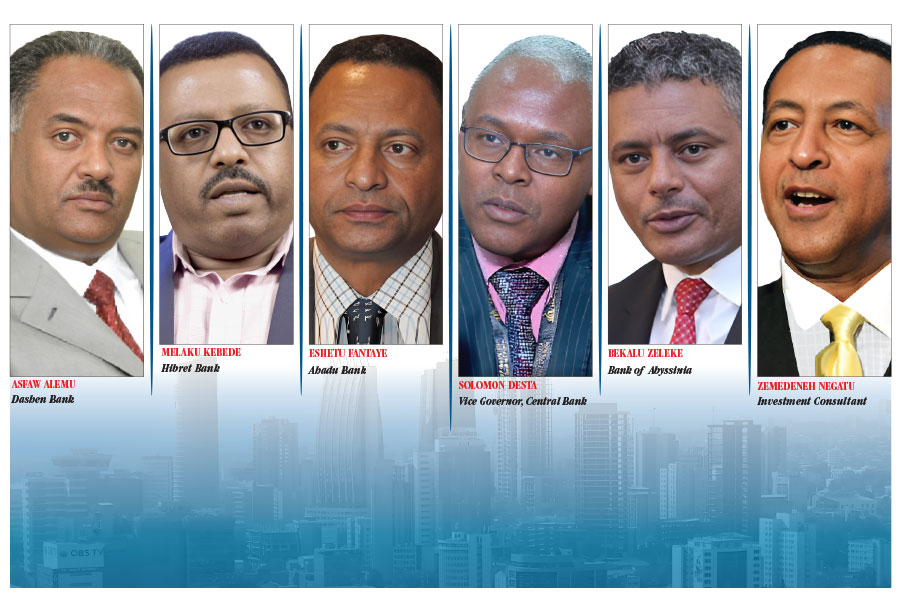
Fortune News | Nov 26,2022

Commentaries | Apr 22,2022

Commentaries | Dec 29,2018

Fortune News | Aug 17,2025

Radar | Jul 24,2021
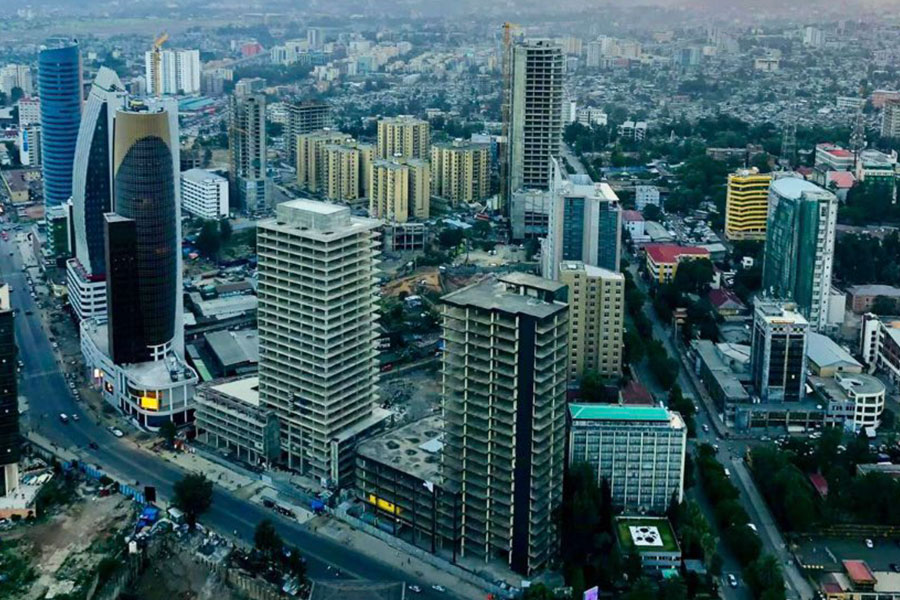
Agenda | Aug 27,2022

Dec 22 , 2024 . By TIZITA SHEWAFERAW
Charged with transforming colossal state-owned enterprises into modern and competitiv...

Aug 18 , 2024 . By AKSAH ITALO
Although predictable Yonas Zerihun's job in the ride-hailing service is not immune to...

Jul 28 , 2024 . By TIZITA SHEWAFERAW
Unhabitual, perhaps too many, Samuel Gebreyohannes, 38, used to occasionally enjoy a couple of beers at breakfast. However, he recently swit...

Jul 13 , 2024 . By AKSAH ITALO
Investors who rely on tractors, trucks, and field vehicles for commuting, transporting commodities, and f...

Sep 13 , 2025
At its launch in Nairobi two years ago, the Africa Climate Summit was billed as the f...

Sep 6 , 2025
The dawn of a new year is more than a simple turning of the calendar. It is a moment...

Aug 30 , 2025
For Germans, Otto von Bismarck is first remembered as the architect of a unified nati...

Aug 23 , 2025
Banks have a new obsession. After decades chasing deposits and, more recently, digita...